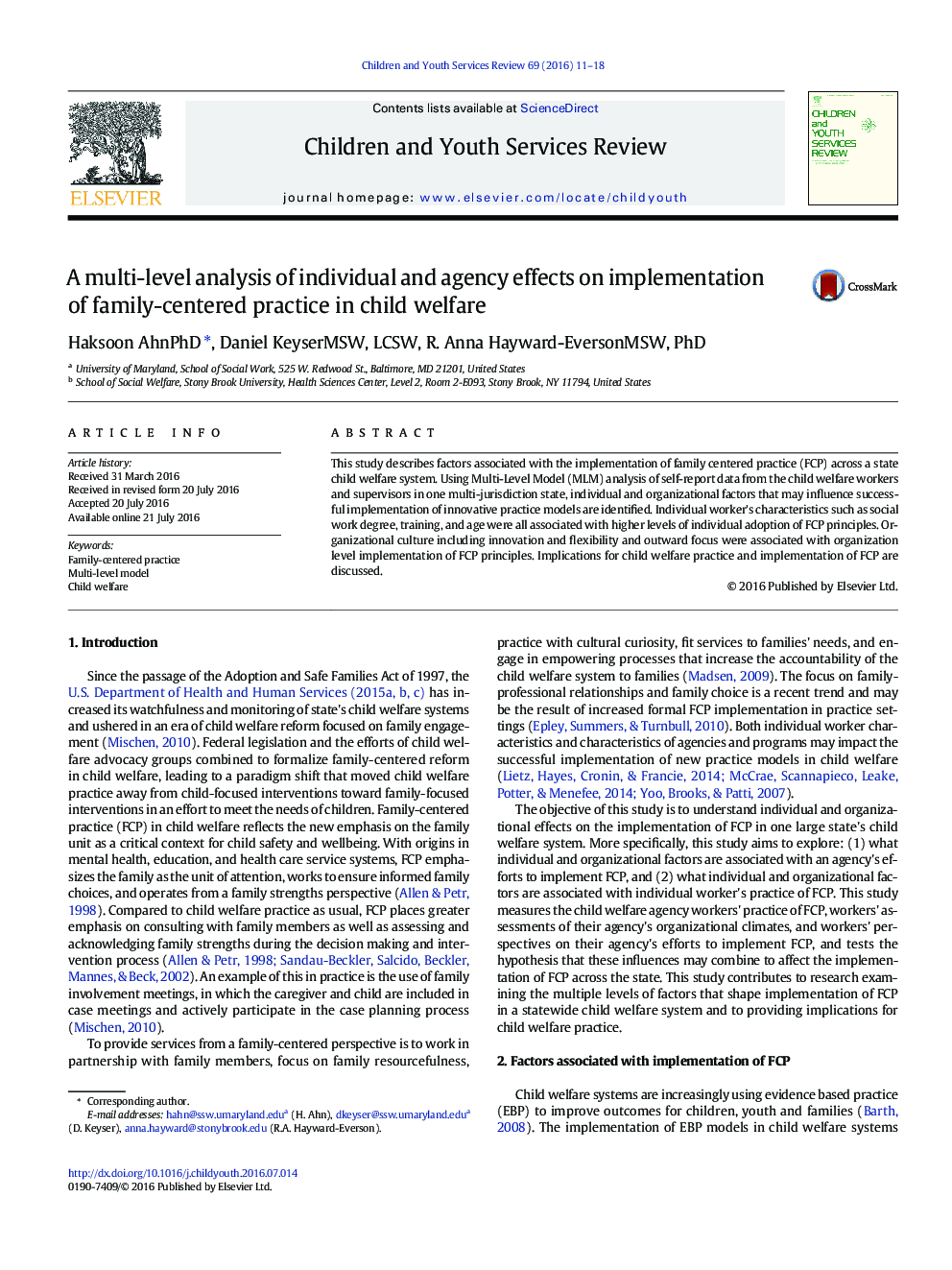| کد مقاله | کد نشریه | سال انتشار | مقاله انگلیسی | نسخه تمام متن |
|---|---|---|---|---|
| 345767 | 617764 | 2016 | 8 صفحه PDF | دانلود رایگان |
• This study examines the factors on an agency’s implementation of the FCP model.
• This study examines the factors on an individual worker’s practice of the FCP model.
• Individual worker’s degree, training, and age were associated with higher levels of FCP principles.
• Innovative, flexible, and outward organizational climates were associated with FCP principles.
This study describes factors associated with the implementation of family centered practice (FCP) across a state child welfare system. Using Multi-Level Model (MLM) analysis of self-report data from the child welfare workers and supervisors in one multi-jurisdiction state, individual and organizational factors that may influence successful implementation of innovative practice models are identified. Individual worker's characteristics such as social work degree, training, and age were all associated with higher levels of individual adoption of FCP principles. Organizational culture including innovation and flexibility and outward focus were associated with organization level implementation of FCP principles. Implications for child welfare practice and implementation of FCP are discussed.
Journal: Children and Youth Services Review - Volume 69, October 2016, Pages 11–18
